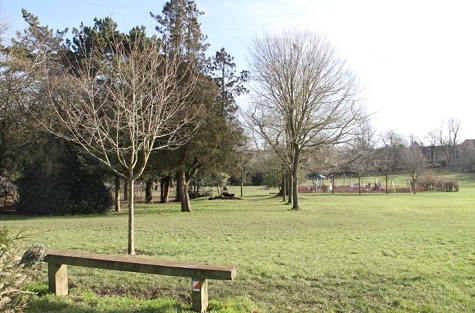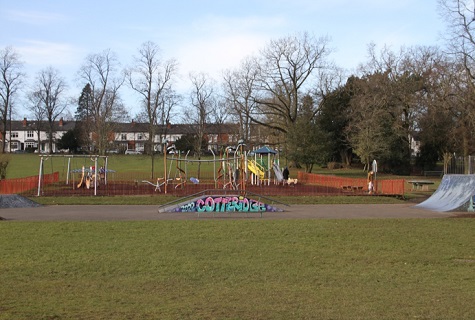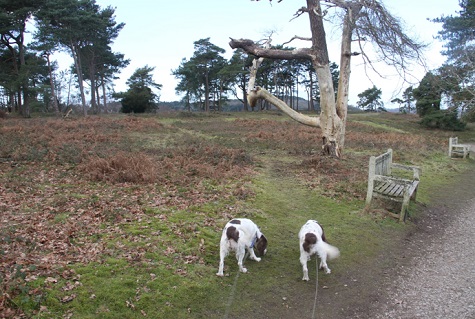Last week I visited several public parks in the Midlands in my role of a mystery shopper to gauge their current condition and see if they are meeting the Green Flag awards standards.
Most of them did, with the exception of one or two who will need some further inputs to maintain their status.
However, having said that, we have over the years come to notice that many of our parks and public open spaces have been devoid of the relevant maintenance funds they perhaps had in the past. Following years of austerity, we are now seeing parks maintained on skeleton budgets, with the minimum of maintenance regimes undertaken. Gone are the days when parks were mown weekly, with several staff permanently employed in the parks.

We are now seeing plenty of parks shifting to these new rewilding concepts, where large tracts of grass areas are being left to rewild. The aim is to reduce costs and at the same time provide some new habitats for wildlife, increasing the populations of insects, mammals and birds.
Unfortunately, the decline of parks budgets go back to the 1980s when the Compulsory Competitive Tendering (CCT) Act was introduced in 1980.
CCT) is a process in which local authorities must put certain services, including park management, out to tender.
The aim of the act was to ensure councils were accountable for the money they were spending. For many councils going out to tender and using contractors was seen as a way of saving money and reducing costs.

Overall, the impact of CCT on parks and public open spaces is a matter of debate, with both potential benefits and drawbacks to the process. However, for many, the constant demand to make savings led to many park services being amalgamated with other council services, mainly highways and waste disposal, which often led to these services taking precedent. Over time this has led to reduced monies being spent on park provision.
Apart from some capital improvements using lottery money and the pittance of 106 funding, parks have seen a vast decrease to their budgets over a period of 40 plus years.
I personally witnessed this process when employed as a parks manager back in the 1990s.
There are 398 principal (unitary, upper and second tier) councils in the UK – 24 county councils, 181 district councils, 36 metropolitan councils, and 124 unitary councils. There are around 11,000 local councils in the UK, from town councils to parish councils.
These councils, along with several trusts, charities and other organisations, manage between them 27,000 public parks across the country and employ a significant number of professionals to manage and maintain them within such service areas including streetcare, waste services, leisure services, community services, neighbourhood services and cultural services.
It is now a rarity to find an authority that retains its distinct ‘parks service’ as it has most likely been absorbed into a wider departmental structure. Yet public perception is very different, and many still perceive that ‘parks departments’ still exist.

As a current member of the Parks Management Association our aim is to represent parks managers and hopefully find ways to increase the awareness and importance of these valuable public open paces and what they bring to the community.
The Association has partly been established to lobby for the need for good-quality public parks. This case has been made incessantly over the last twenty-five years and continues to be made. It has however, been set up to give a voice to parks professionals - those who know more about these places than anyone.
Over the last 20+ years, there has been a significant reduction in the number of professionals dedicated to the management of parks and green spaces - with headlines such as ‘last of a dying breed’ and media coverage not only in the trade press but also in mainstream media (The Guardian and the Daily Mail, Mail on Sunday, BBC Radio). Like many public services, austerity has hit us hard and soft services such as parks have and continue to be hit severely with parks and green spaces management professionals often becoming marginalised and in many authorities, redundancies have occurred with significant posts lost.

I outlined these problems in a recent Veiwpoint article, Time for Action. The article discussed the issues around recruitment into our industry. Without the committed of driven professionals, the skills sets required for maintaining our public open spaces will be lost.
It is time the government listened to the wealth of evidence about the importance of green space and began a proper investment programme into these wonderful assets. I cannot imagine what it would be like living in a country, with no natural managed green space on our doorstep.
You can read in TurfPro today the government’s newly announced roadmap to improving nature across the UK.
Let all hope that this delivers what it promises and hopefully will eventually give local authorities the appropriate money to manage and maintain our 27,000 public parks and green open spaces.